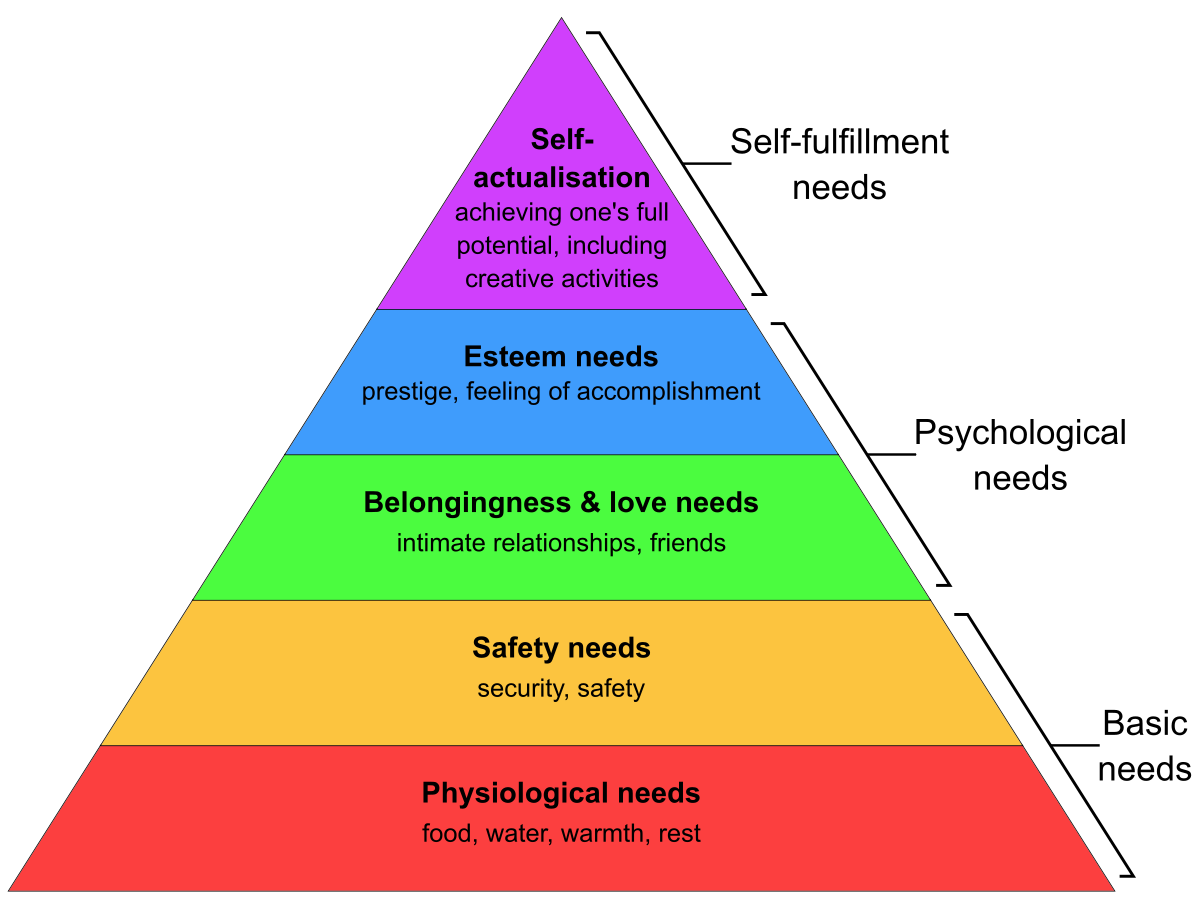How Maslow’s Hierarchy of Needs Helped Me to Appreciate My Challenges
No one is without problems. No matter how much we have, attain, or earn, we will find problems that require solving. No matter where we fit in, how many friends we have, romantic relationship or none; busy social life or quiet, we will encounter interpersonal challenges. No matter the skills we develop or the way our philosophies broaden to include wider concerns…we will still never be able to transcend problems.
I know. I know. You may be thinking, “But, wait, this is kind of depressing to think about. You mean I will never be free from personal challenges and problems, no matter how much I work on improving myself?” Fortunately, no. That was not a typo…I meant we really ARE fortunate to have problems. Let me explain what I mean.
Back in 1943, a psychologist named Abraham Maslow came up with a motivational theory about human behavior. In his paper, “A Theory of Human Motivation”, Maslow theorized that people have innate tendencies to seek out fulfillment of needs in a manner that follows a certain structure.
He called this structure the hierarchy of needs, which is represented as the pyramid below:
Maslow said that humans move through the pyramid in a bottom-up fashion as they try to get their needs met. Needs represented at lower levels of the pyramid must be met first before needs in the next level up can be met. For example, a person that is without food, clean water and shelter will not be concerned about a job or social stability until they can find sustainable housing and regular meals. And a person that is lacking in a sense of belonging to friends, family or wider community groups will be less likely to be concerned about developing self-esteem or achievement.
The first four levels: physiological needs, safety and security, love and belonging, and self-esteem are defined as deficiency needs (D-needs). Deficiency needs stem from deprivation and will grow stronger the longer they are unmet. Once these needs are met, they tend to decrease, and a person is able to move onto the next need in the hierarchy. The top need in the pyramid is self-actualization, which is defined as a growth or being needs (B-needs). Unlike D-needs, these needs tend to increase the more they are engaged, as they do not stem from a lack of something, but rather from a desire to grow as person. While needs to do not need to be completely met before motivation will move people up the pyramid, they must be more-or-less fulfilled.
So, what does all of this have to do with being fortunate to have problems?
Well, if you think about the type of problems you have, in relation to Maslow’s hierarchy it can serve as a reminder of the things you already have in life. For example, if you are struggling with finding a job that brings you a sense of accomplishment and meaning, it means that you must have your basic physiological needs met. You have adequate housing, regular meals, water, clothes and a place to sleep. Additionally, it also means that you are safe, relatively healthy, with some manner of financial stability, and feel a sense of connection and place with people in your life. If you are struggling with perfecting a new skill, it means that you don’t have to spend your time worrying about where you will find your next meal or where you will be sleeping tonight. If your challenges are perfecting your tennis game, learning a new song on the guitar, or mastering the perfect red velvet cake for your next dinner party…then congratulations!! According to Maslow’s lovely pyramid, this means you have more-or-less fulfilled all of your deficiency needs.
What this meant for me was a new way to look at my challenges, my problems, with gratitude rather than annoyance. Maslow’s hierarchy of needs helped me realize that my problems were actually indicators of things I had, rather than things I lacked. If I am struggling with my writing, it means that I actually have the available resources to allow me to pursue and develop this skill. I am sitting at the top of Maslow’s pyramid…on top of all the other things that I already have in my possession: housing, food, clean water, safety, family, friendship, opportunities to pursue things that matter to me, feelings of competence and achievement.
When viewed through Abraham Maslow’s hierarchy of needs, my problems are reminders to me of all the ways I am blessed. Yes, they may still be difficult, cause me frustration, or even pain, however, they also remind me of how much I have to be thankful for.


